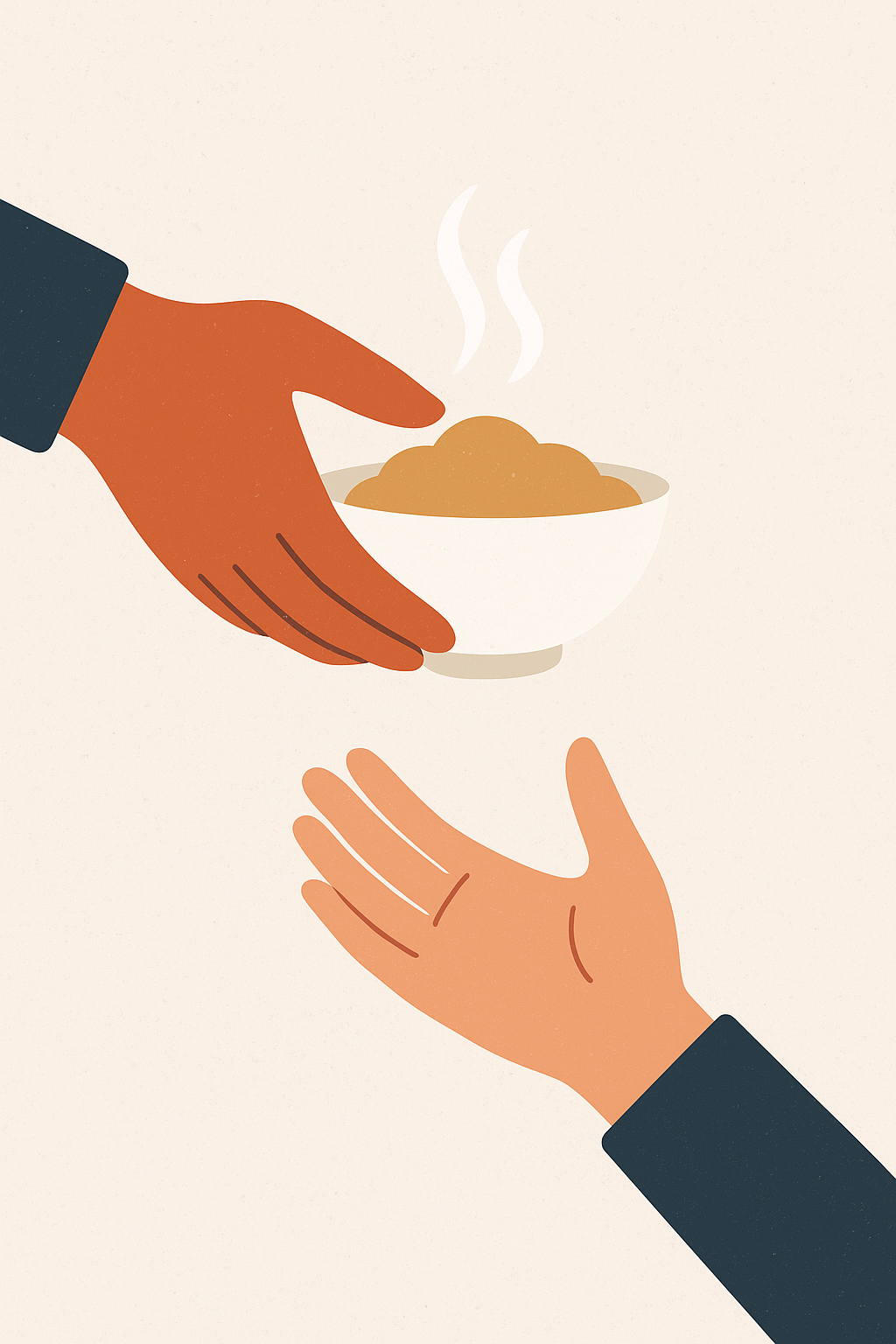
Riya had just joined a new office. On her first day, a friendly colleague said, “Don’t worry about the coffee machine, I’ll get you a cup.” It was a small gesture, and Riya was grateful.Weeks later, that same colleague needed help finishing a late-night report. Riya stayed two extra hours. A month later, he asked her to cover for him in a client meeting. She agreed again. Over the next year, she found herself doing little favors for him without ever really questioning why.One day it hit her — all of this started with one free cup of coffee.
Moral: In offices, the cost of a free coffee is rarely ₹50… it’s usually hours of your time.
Light Joke: In corporate life, nothing is truly free — except unsolicited advice from your manager.
It is advisable to avoid becoming involved in any form of exchange with others, even in seemingly small matters such as sharing food or a cup of tea. While this may appear trivial, such actions can have long-term implications.
The core reasoning is not about the food itself but about the underlying principle of indebtedness. When one accepts even a small favor, such as a portion of someone’s meal, there is often a subconscious inclination to reciprocate. The initial gesture may seem insignificant to the giver, but to the receiver, it represents a part of what the other person possesses.
Illustrative Story:
Many years ago, there was a man named Arvind who worked at a small repair shop. One afternoon, his colleague offered him half of a sandwich. Arvind accepted gladly. Months later, when his colleague needed help fixing his motorbike, Arvind spent an entire weekend doing the work free of charge. When asked why, Arvind simply said, “I never forgot that sandwich.” Over the years, small acts like this added up, and Arvind found himself spending more time and resources on “repaying” favors than on his own needs — all from one harmless-looking bite of bread.
This is how even a simple gesture can start a chain of obligations. If someone shares half their meal, they are giving away a meaningful portion of what they have. In return, you may feel compelled to offer something you value far more, such as money, time, or effort. Over time, the repayment can greatly exceed the original value received.
Light Joke:
Think of it like borrowing a pen from a friend. You return it a week later… along with a gift hamper, a thank-you note, and an awkward promise to attend their cousin’s wedding — all because of that one pen.
Therefore, to prevent entering into an ongoing cycle of perceived obligation, it is best to avoid such exchanges from the outset. By doing so, you remove the possibility of a small initial act leading to a disproportionate and long-lasting sense of indebtedness.


